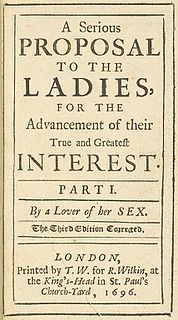A Quote by Thomas a Kempis
Old custom is hard to break and scarce any man will be led otherwise than seemeth good unto himself.
Related Quotes
A good laugh is a mighty good thing, and rather too scarce a good thing; the more's the pity. So, if any one man, in his own proper person, afford stuff for a good joke to anybody, let him not be backward, but let him cheerfully allow himself to spend and be spent in that way. And the man that has anything bountifully laughable about him, be sure there is more in that man than you perhaps think for.
A man preacheth that sermon only well unto others which preacheth itself in his own soul. And he that doth not feed on and thrive in the digestion of the food which he provides for others will scarce make it savoury unto them; yea, he knows not but the food he hath provided may be poison, unless he have really tasted of it himself. If the word do not dwell with power in us, it will not pass with power from us.
Is there any man that thinks in chains like the man who calls himself a free-thinker? Is there any man so credulous as the man who will not believe in the Bible? He swallows a ton of difficulties, and yet complains that we have swallowed an ounce of them. He has much more need of faith of a certain sort than we have, for skepticism has far harder problems than faith.
There is here, what is not in the old country. In spite of hard, unfamiliar things, there is here - hope. In the old country, a man can be no more than his father, providing he works hard. If his father was a carpenter, he may be a carpenter. He many not be a teacher or a priest. He may rise - but only to his father's state. In the old country, a man is given to the past. Here he belongs to the future. In this land, he may be what he will, if he has the good heart and the way of working honestly at the right things.
And, moreover, when it happens that both are sincere and good, nothing will mix and amalgamate more easily than an old priest and an old soldier. In reality, they are the same kind of man. One has devoted himself to country upon earth, the other to his country in heaven; there is no other difference.
Whoever is wise is apt to suspect and be diffident of himself, and upon that account is willing to "hearken unto counsel"; whereas the foolish man, being in proportion to his folly full of himself, and swallowed up in conceit, will seldom take any counsel but his own, and for that very reason, because it is his own.





































